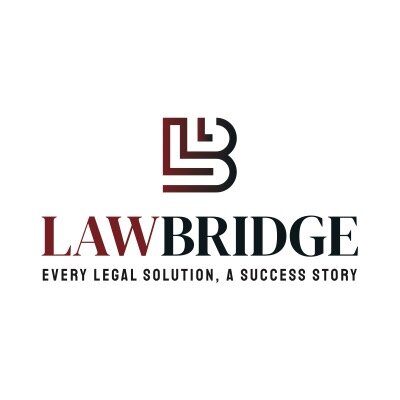Best Antitrust Lawyers in United Arab Emirates
Share your needs with us, get contacted by law firms.
Free. Takes 2 min.
Or refine your search by selecting a city:
List of the best lawyers in United Arab Emirates

About Antitrust Law in United Arab Emirates
Antitrust law in the United Arab Emirates (UAE) is designed to promote fair competition, prevent abuse of dominant positions, and prohibit anti-competitive practices in the market. The UAE’s legal framework aligns with international standards to ensure a competitive business environment, encouraging innovation and consumer choice. The cornerstone of the UAE’s competition regulation is the Federal Law No. 4 of 2012 concerning the Regulation of Competition. The law is applicable to all entities operating in or affecting UAE markets unless specifically exempted.
Why You May Need a Lawyer
Legal advice in the field of antitrust is crucial in several scenarios:
- Businesses planning mergers or acquisitions may need to ensure compliance with competition laws to avoid claims of creating unfair market dominance.
- Companies facing investigations or fines for potentially violating antitrust laws require legal representation to navigate complex proceedings.
- Entities suspecting anti-competitive practices, such as cartels or abuse of market dominance by competitors, may seek legal counsel to explore remedies and enforcement actions.
- Organizations wishing to develop compliance programs to proactively prevent antitrust issues benefit from specialist legal guidance.
Local Laws Overview
The UAE's antitrust framework is primarily governed by Federal Law No. 4 of 2012, which outlines the following key aspects:
- Anti-competitive Agreements: Prohibitions are placed on agreements between entities that have the object or effect of restricting competition. This includes price-fixing, market-sharing, and collusive bid-rigging.
- Abuse of Dominance: Entities with a dominant position in the market are restricted from practices that exploit their power to the detriment of competition, such as predatory pricing or imposing unfair trading terms.
- Merger Control: Mergers and acquisitions that may lead to a significant lessening of competition are subject to review and require prior approval from the competent authority.
- Enforcement Authority: The Ministry of Economy is primarily responsible for overseeing and enforcing antitrust regulations, including conducting investigations and imposing penalties.
- Penalties: Breaches of competition laws may result in severe financial penalties and potentially reputational harm to the entities involved.
Frequently Asked Questions
1. What is the primary goal of antitrust law in the UAE?
The primary goal is to maintain fair competition, prevent unfair trade practices, and protect consumer interests by regulating anti-competitive activities.
2. Are all businesses subject to UAE's antitrust law?
Yes, most businesses operating in or affecting the UAE market are subject to the competition laws, with specific exemptions for certain sectors as stipulated by the law.
3. What constitutes a dominant position under UAE law?
A dominant position is typically defined by a significant market share, enabling an entity to act independently of competitors and customers.
4. How are mergers regulated in the UAE?
Mergers likely to reduce market competition significantly require prior approval from the Ministry of Economy.
5. What happens if a company is found guilty of anti-competitive practices?
Penalties may include substantial fines, injunctions against certain activities, and measures to restore competitive conditions.
6. Can individuals report anti-competitive practices?
Yes, individuals and businesses can report suspected violations to the Ministry of Economy.
7. What kind of exemptions exist under UAE antitrust laws?
Exemptions may apply to specific sectors or activities deemed necessary for the public interest, as determined by the authorities.
8. Does the UAE have a leniency program?
The UAE does not currently have a formal leniency program, but cooperation with investigations may influence enforcement actions.
9. How can a business ensure compliance with antitrust regulations?
Companies should conduct regular legal reviews and implement compliance programs, seeking expert legal advice when necessary.
10. Are antitrust decisions in the UAE subject to appeal?
Yes, parties impacted by antitrust rulings can appeal decisions in the UAE’s judicial system.
Additional Resources
For more information and assistance, consider reaching out to the following resources:
- Ministry of Economy: The primary body for competition regulation in the UAE, providing guidelines and addressing inquiries regarding antitrust compliance.
- Legal Firms Specializing in Competition Law: Engaging with law firms that specialize in competition and antitrust law can provide tailored advice and representation.
- UAE Government Portal: Access comprehensive information on policies, updates, and advisories concerning competition law.
- Local Chambers of Commerce: These organizations can offer insights and support for businesses navigating the regulatory landscape in the UAE.
Next Steps
If you require legal assistance in antitrust matters, consider the following steps:
- Conduct preliminary research to identify the specific nature of your concern or inquiry related to antitrust laws.
- Consult with a reputable legal expert specializing in competition law within the UAE to discuss your situation in detail.
- Gather all relevant documentation and evidence that pertains to your case or inquiry to facilitate informed legal advice.
- Assess potential legal strategies with your counsel and decide on the most appropriate course of action.
- Stay informed about any changes in legislation or enforcement practices that may impact your business operations.
Lawzana helps you find the best lawyers and law firms in United Arab Emirates through a curated and pre-screened list of qualified legal professionals. Our platform offers rankings and detailed profiles of attorneys and law firms, allowing you to compare based on practice areas, including Antitrust, experience, and client feedback.
Each profile includes a description of the firm's areas of practice, client reviews, team members and partners, year of establishment, spoken languages, office locations, contact information, social media presence, and any published articles or resources. Most firms on our platform speak English and are experienced in both local and international legal matters.
Get a quote from top-rated law firms in United Arab Emirates — quickly, securely, and without unnecessary hassle.
Disclaimer:
The information provided on this page is for general informational purposes only and does not constitute legal advice. While we strive to ensure the accuracy and relevance of the content, legal information may change over time, and interpretations of the law can vary. You should always consult with a qualified legal professional for advice specific to your situation.
We disclaim all liability for actions taken or not taken based on the content of this page. If you believe any information is incorrect or outdated, please contact us, and we will review and update it where appropriate.
Browse antitrust law firms by city in United Arab Emirates
Refine your search by selecting a city.














